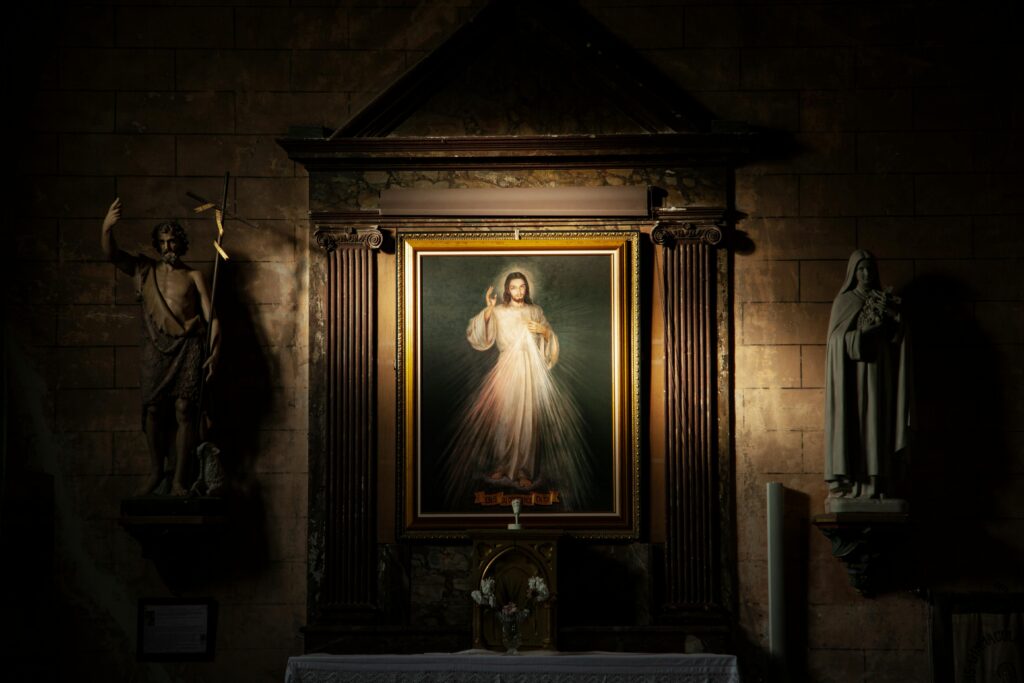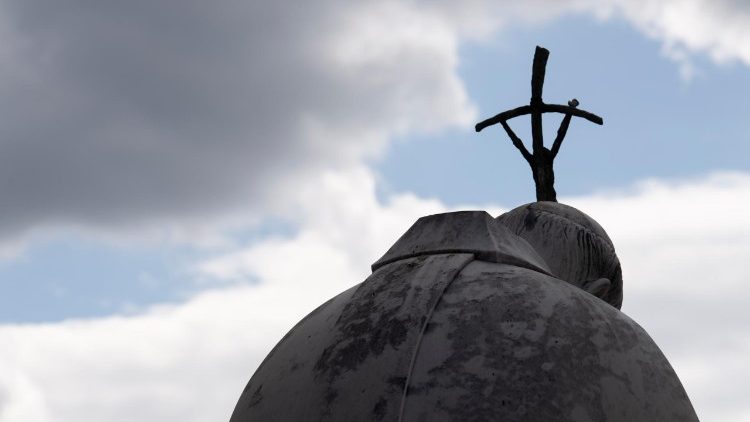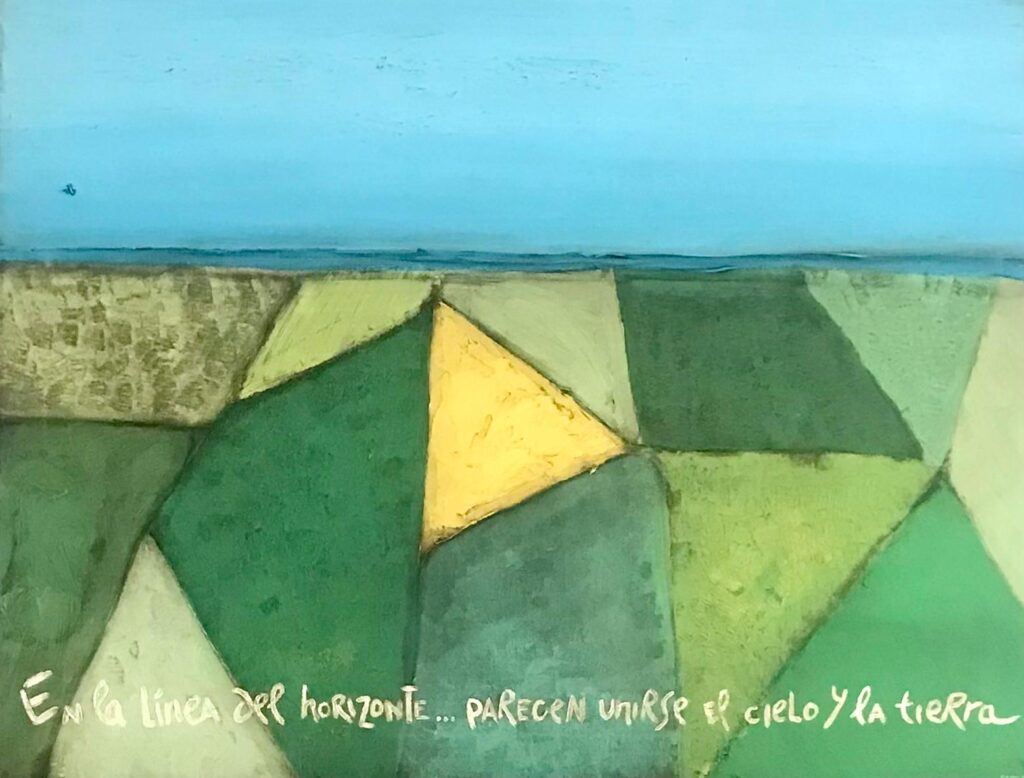Christ the King: A Divine Paradox in Contemporary Times
Christ the King: A Divine Paradox in Contemporary Times

The liturgical year culminates with the celebration of Christ the King Sunday, a title that, in our days, may sound ironic. All around us, we see how Christ is harassed, expelled and not recognized. In the commercial premises of my neighborhood, there are various posters advertising events, among them one that mentions a concert by a group called “Non Serium.” This expression contains a clear typo due to ignorance of the Latin, since it should be “Non Serviam” (I will not serve). This cry of rejection resounds everywhere: Christ is expelled, Christ does not reign.
This situation is reflected in the scene of the Gospel that we read this Sunday, where Christ is presented to Pilate to be judged and condemned to death. Pilate asks him: “Are you the king of the Jews?” An absurd question, considering that Jesus is arrested, humiliated and accused. Yet Jesus answers: “You say so, I am a king. For this I was born and for this I came into the world.” The Church solemnly confesses that Jesus Christ is king of the universe, even though he is apparently a dispossessed king.
The power of God is singular. We can easily understand efficient causality, physical power, like a jackhammer drilling into a rock or a father carrying his newborn child to the cradle. There is a higher power: the power of life, when the temperature and light of the sun interact with the seed and cause it to germinate and bear fruit. This power is higher than purely physical power. But there is an even higher step: spiritual power, when a father, mother or teacher teaches and explains something to a child or student, creating a climate of freedom for understanding to emerge.
However, the highest power is the causality of love. When a father or mother loves their child, a freedom is born in them that did not exist before. Love creates freedom, an energy and self-esteem that transforms the person. This is the power of God: he loves man beyond measure, to the last drop of his blood. Christ on the cross shows how much God loves us more than himself. Contemplating him, we feel joy, self-esteem and a response to the longing for infinite and eternal love that is in our hearts, leading us to give ourselves completely to him.
But this power of God, this kingship, also has its counterpart: its weakness and fragility. Love is always delicate, vulnerable and rejectable. It is an offer that can be easily rejected in a materialistic and sensual culture. It is enough to look at the statistics of failures in marital love today to realize that these are bad times for love and, therefore, also for love of God.
The two faces of the feast of Christ the King are: a power capable of achieving the total surrender of a person to God, and a power that is easily rejected, fragile and vulnerable. Years ago, Pope Leo XI consecrated the Church and the world to the Sacred Heart of Jesus. Since then, we have seen both progress and shadows. There have been technological and scientific advances, but it has also been a time of great violence, wars, genocides, attacks and pandemics. Secularization has advanced like never before, and our civilization has become overwhelmingly atheistic or agnostic.
Every year, these two feasts, Christ the King and the consecration to the Sacred Heart of Jesus, are united. The Pope established that on the solemnity of Christ the King the consecration of the world to the Sacred Heart of Jesus is renewed. St. Josemaría also consecrated the Work to the Sacred Heart for three fundamental reasons: the contradiction of the good, economic hardship and the peace of consciences in the midst of the Cold War.
Today, when we reflect on these events, we can better understand the theology of history from the eyes of God. The history of salvation takes place in the hearts of people, not in events or institutions. Jesus Christ proclaimed the coming of the kingdom of God in the heart of every person, showing the face of God from the cross.
History is real, not a mere succession of time or an automatic display of forces. The future is unwritten, it depends on our freedom. There will be no definitive state of good things in this world. The parable of the wheat and the tares reminds us that we will always live with good and bad, progress and regression, sin and trial.
The history of salvation concerns not only heaven, but also earth. God’s action manifests itself in the form of fullness, salvation, healing and happiness. The happiness of heaven is reserved for those who know how to be happy on earth. Thus, the true history of salvation occurs in our hearts, is in constant process and manifests itself in the fullness of salvation and happiness.
In conclusion, the feast of Christ the King invites us to recognize the unique power of God, a power that transforms from love and freedom, despite its fragility and vulnerability. It calls us to consecrate ourselves completely to Him, trusting in His infinite and eternal love.
Related

Francis’s 38 Days in the Hospital: Appointments and Cries for Peace
Exaudi Staff
01 April, 2025
5 min

Forgiving Infidelity
P Angel Espinosa de los Monteros
31 March, 2025
2 min

Emilio Girón: Stubbornness and Tinto de Verano
Exaudi Staff
30 March, 2025
5 min

Overcoming Emotional Dependence: A Guide with Psychologist Mónica Caballero
Proyecto Ánima
28 March, 2025
2 min
 (EN)
(EN)
 (ES)
(ES)
 (IT)
(IT)

